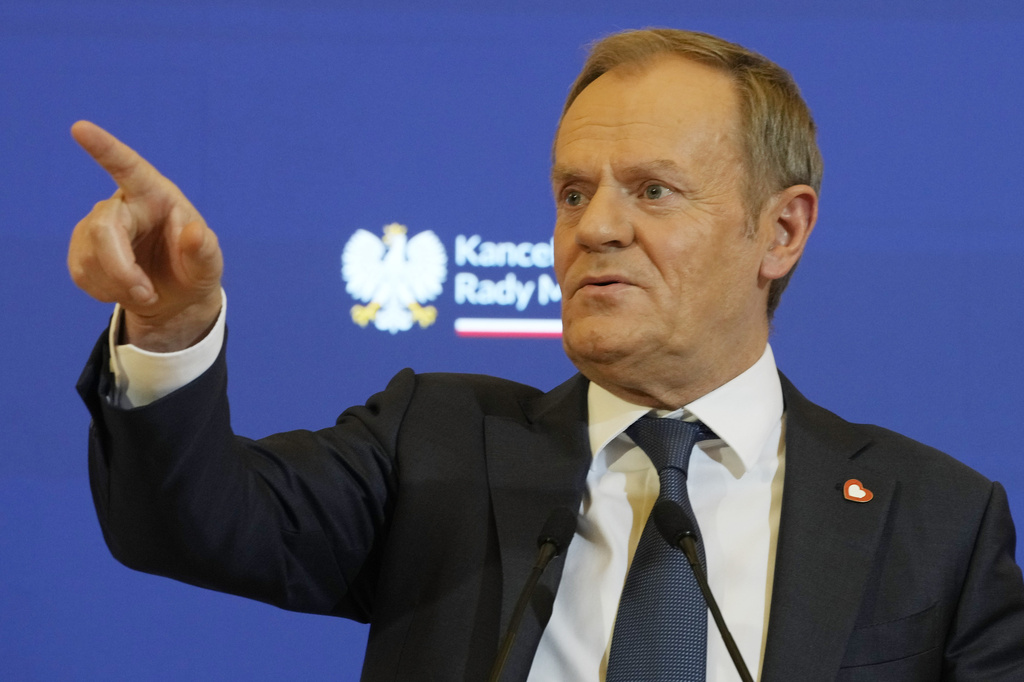Polish MPs Mariusz Kamiński and Maciej Wąsik owe their freedom solely to the fact that their ally, President Andrzej Duda, retains the right of pardon for another year and a half. Without this, they would likely face months, if not years, in prison. Donald Tusk, while having no influence over the court’s verdict, played a pivotal role in detaining both men at the presidential palace and firmly opposing Duda’s pressures to release them from prison.
The ruling party harbors deep-seated animosity towards Kamiński and Wąsik, who managed the intelligence services and later the police during PiS’s two terms. This period saw the services encircling Tusk and his family and a relentless pursuit of politicians from the Civic Platform (PO) party, such as Nowak, Gawłowski and Grodzki, as well as police brutality against anti-government protesters, including women opposing stricter abortion laws.
In this context, the incarceration of Kamiński and Wąsik represents a historic justice for the new government, despite their convictions being for entirely different reasons. Duda’s pardon changes nothing in Tusk’s eyes, and Tusk made it clear that their legal troubles are far from over.
“The case of Kamiński and Wąsik is not concluded. The presidential pardon does not alter the fact that they will be held accountable for other matters. Their actions over the past eight years, including surveillance of the opposition using Pegasus spyware, also warrant investigation,” stated the prime minister.
For Tusk’s revenge to fully materialize, at least two political shifts are necessary.
First, the government must gain control over the prosecutor’s office, currently under the stewards of the previous minister of justice, Zbigniew Ziobro. With the current personnel, the prosecutor’s office won’t harm any significant PiS politician. Justice Minister Adam Bodnar, acting on Tusk’s orders, is attempting to take control of the prosecutor’s office and will likely succeed, despite fierce resistance from Ziobro’s supporters and the president.
Secondly, to hold PiS politicians accountable, the new government needs to win the presidency next year to influence judicial appointments and control pardons. The ruling party, besides Tusk himself, has at least two serious candidates: Rafał Trzaskowski and Szymon Hołownia.
Conversely, Kaczyński lacks a strong candidate. Moreover, PiS, devoid of influence over public media and state-owned companies, will struggle to finance its election campaign.
There’s no doubt that Tusk will do everything in his power to execute this revenge scenario, evidenced by the government’s first few weeks: detaining Kamiński and Wąsik, ousting PiS from public media, and attacking the prosecutor’s office.
Tusk’s policy is fundamentally based on one long-term assumption: Kaczyński can never return to power. If he ever did, the extent of his vengeance would be unimaginable — certainly imprisoning Tusk and outlawing the Civic Platform. Thus, Tusk is committed to ensuring Kaczyński never regains power, and his current actions are part of a meticulously crafted plan to bid farewell to the president.
In PiS, Tusk’s blitzkrieg has caused shock and fear. Some members are so intimidated that they suspect Tusk might try to outlaw PiS, a clear sign that fear is clouding their judgment. After all, Kaczyński ensured a favorable Constitutional Tribunal, which makes key decisions in such matters. Tusk is preparing for a confrontation with the tribunal’s “doubles” (judges appointed by PiS to seats already filled) and the neo-judges in the courts, but this won’t give him easy control over the judiciary, which Kaczyński nearly achieved.
Tusk’s unwavering determination to cleanse Poland of Kaczyński’s influence, including imprisoning PiS members, is evident. He drives ministers from the Civic Platform to take aggressive actions and ties the hands of hesitant coalition partners. His hardline approach such as raids on TVP, revoking the mandates of Kamiński and Wąsik, and investigating irregularities in the Smolensk subcommittee, has cost Hołownia and Kosiniak-Kamysz any chance of courting PiS’ electorate. Tusk further complicates their position by advocating for abortion law liberalization and introducing over-the-counter access to the “morning-after” pill for 15-year-olds. Today, the Third Way is doomed to be in coalition with Civic Platform more than after the elections.
Again, Tusk’s policy fundamentally assumes one thing: Jarosław Kaczyński can never return to power. Therefore, everything Tusk does right now is designed to prevent Kaczyński from regaining power and ensure the next president is firmly in his camp.






